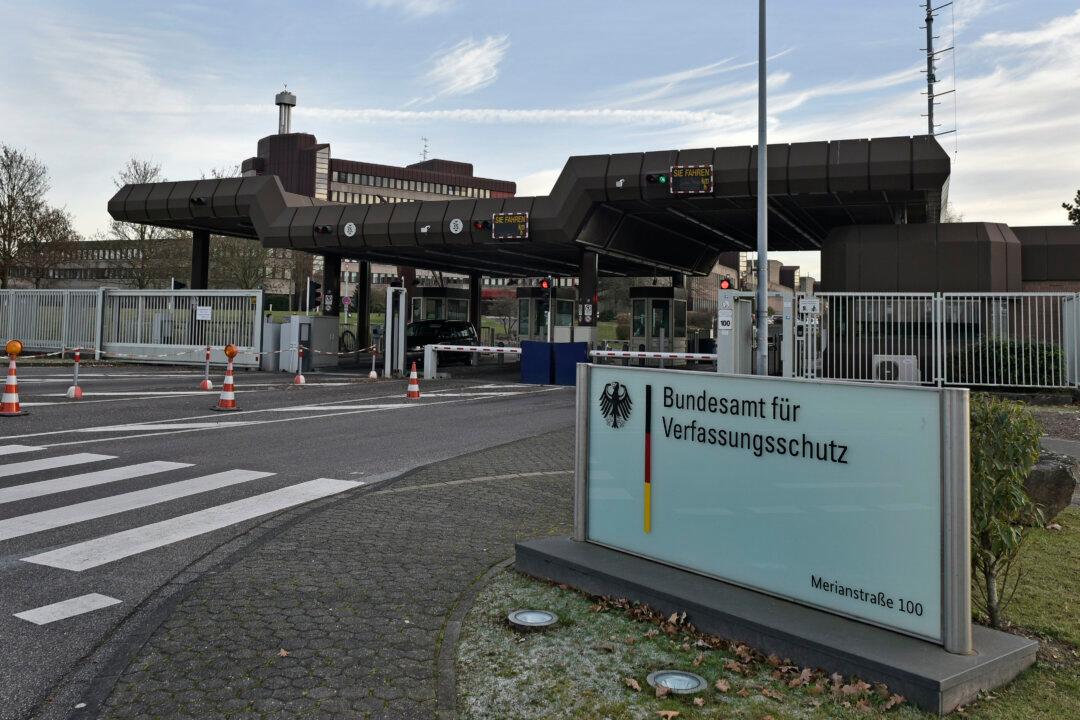BERLIN—On one side of the internet chat was an Islamic extremist who had just got himself a job with Germany’s domestic intelligence agency. On the other side was an agent of Germany’s domestic intelligence agency pretending to be an Islamic extremist.
When the 51-year-old mole, a German who had converted to Islam, offered to use his new job to provide information to “help the brothers” plan an attack against his employer, German law enforcement swooped in.
It appears little harm was done to the intelligence agency, known by its German acronym BfV, Duesseldorf prosecutors said Wednesday.
“So far, there have been no reliable indications that the accused had already given security-relevant information to people from the violent Salafist scene,” prosecutor Ralf Herrenbrueck, whose office is leading the investigation, told The Associated Press in a written response to questions.






